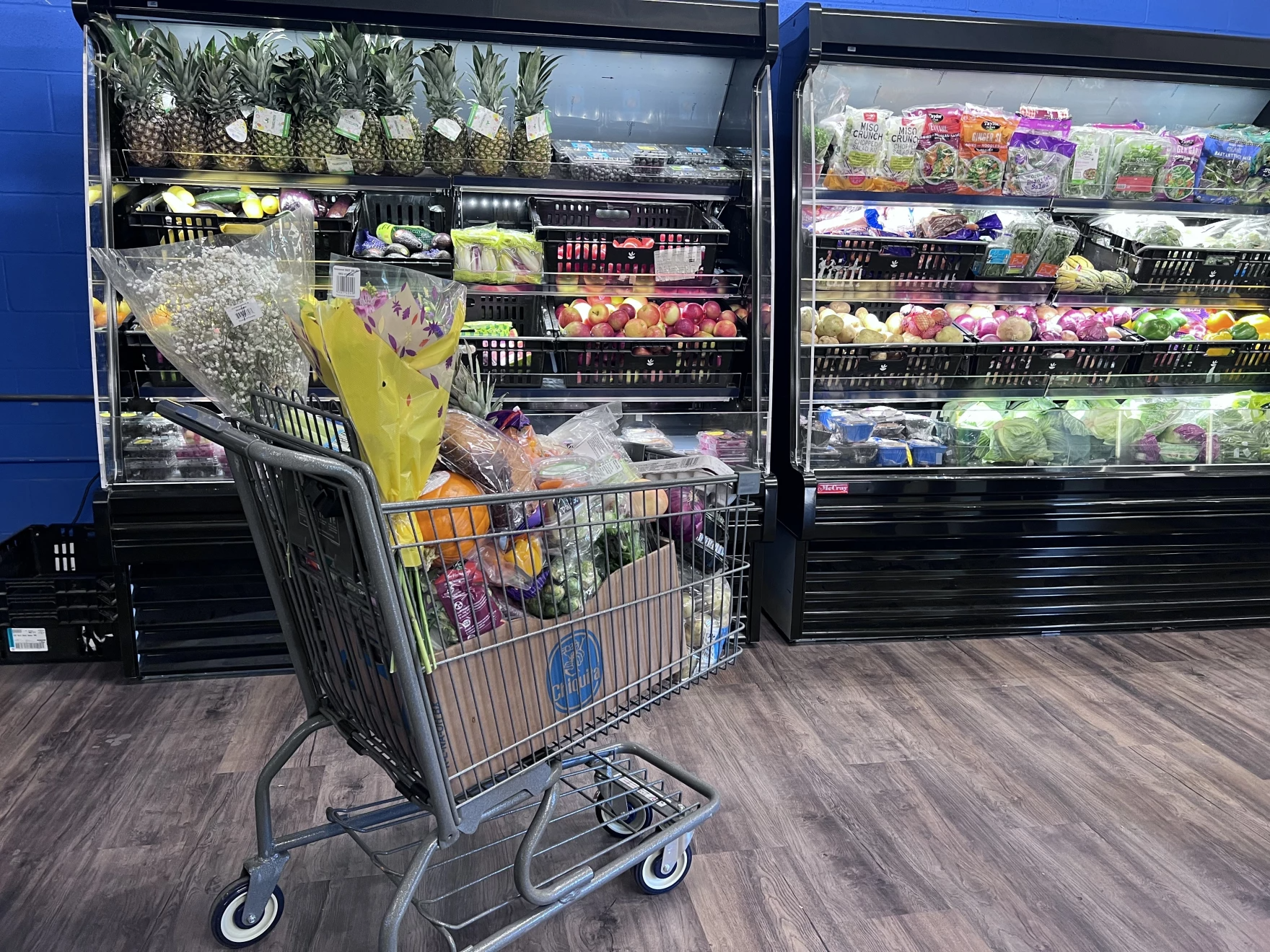
Story Produced by NH Public Radio, a member of

MANCHESTER, NH – Some New Hampshire food pantries said they are struggling to keep up with growing demand heading into the holiday season as inflation is making it hard for families to afford food — and harder for others to afford the charitable donations that power many food distribution efforts.
Inflation is hitting the New Hampshire Food Bank hard. Executive Director Eileen Groll Liponis said in 2021, they bought food for around 56 cents per pound, but in November 2022, they have been spending 89 cents per pound.
Groll Liponis said they ordered food for the Thanksgiving holiday four months in advance, but supply chain issues are still affecting their inventory. Groll Liponis said they see 34% less variety on their shelves, especially fresh produce. For Thanksgiving, they’re running short on cranberry sauce.
The food bank has distributed around 10,000 turkeys and 7,000 food vouchers, and they are hoping it will be enough.
“When there is less left over at the grocery store, that is less left over for us for salvage,” Groll Liponis said.
There is less food and much more people in need, she said. In one community, the number of families looking for food at a mobile pantry jumped from 300 to 600 compared to past years. Other pantries have reported similar increases.
High food prices are forcing some organizations to rely more on gifts, but those donations are coming up short. Sara Ceaser, director of volunteer and community engagement for the United Way of Greater Nashua, said rising electricity prices are pinching everyone’s pockets.
“They have a less flexible income for charitable causes,” said Ceasar.
The United Way of Greater Nashua hosts pop-up pantries and other food distribution efforts across the city. In the last few months, they have increased the frequency of their food drives from twice a month to weekly to keep up with demand. They are currently helping 125 families per week, and Ceasar said they have also received more holiday special meal requests from older adults and people with disabilities who can not come out of their homes.
Things look similar in the Nashua Soup Kitchen and Shelter, where Executive Director Michael Reinke said food costs have risen around 50% since last year. They’re also seeing a shortage of lettuce. They expect 30% more people to use the pantry and the kitchen this year.
Reinke asked people to donate, especially from April to June when the need is even more significant.
Families in Transition in Manchester is also experiencing a shortage of fresh produce and other items — including eggs, milk and juice — the organization’s chief external relations officer Stephany Savard said.
Still, Savard said the tough economy hasn’t discouraged them from preparing Thanksgiving dinner for people living in emergency shelters and recovery housing. They are fixing a special meal for 200 people.
“Turkey, gravy, potatoes, and veggies, the whole thing,” said Savard.
Families In Transition’s new food pantry served 1,000 families in October, twice what they usually do.
Savard invited Manchester residents who are struggling to afford food to seek help and forget about stigma.
“Their resilience to ask for help is showing that they are supporting their family,” she said.
 These articles are being shared by partners in The Granite State News Collaborative. For more information visit collaborativenh.org.
These articles are being shared by partners in The Granite State News Collaborative. For more information visit collaborativenh.org.







